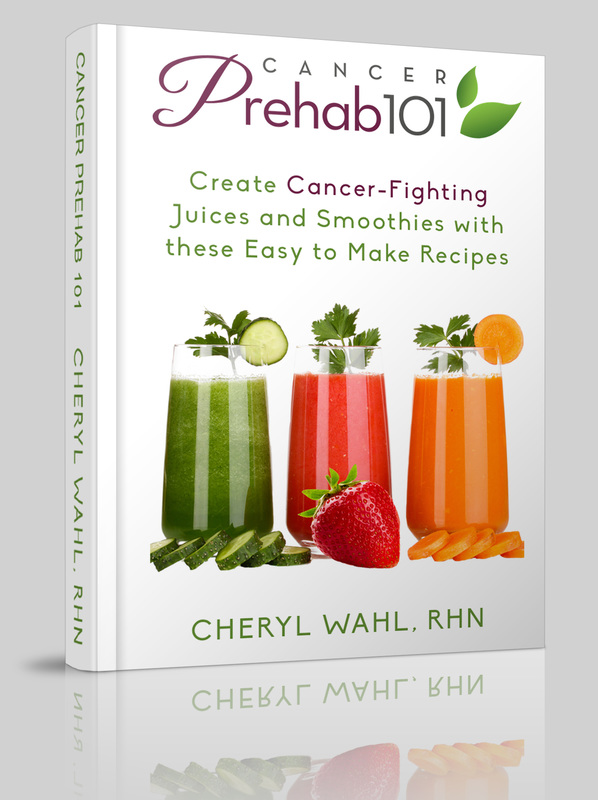|
Okay, I know this time of year can be hard resisting temptation, I have a hard time too.
That's right, sweets and treats. I'm going to give you a little advice here...ENJOY THEM! Yes, I am saying you can have some, but here's the but, but there are a few rules you should follow when you do.
- apple sauce - maple syrup - dates - molasses - stevia Do you have a favourite healthy recipe to share? Or a strategy that helps you get through the eating frenzy of the holidays? Post below, I'd love to hear from you. Happy baking! Cheryl Wahl, RHN Certified Professional Cancer Coach Cancer Exercise Specialist
1 Comment
Immune System
Your immune system is the body’s defense system. Its fundamental role is to protect the life of the body by distinguishing ‘self’ from ‘non-self’ and recognizing what needs to be eliminated or destroyed (cancer cell, virus, bacteria, environmental toxins, and internal toxins). The stronger your immune system is, the more resistant to diseases you will be, such as cold flues and even cancer. Its function is intimately connected to what you think and feel. Emotions of faith, hope, joy and a fighting spirit enhances immune function while depression, lack of purpose and repressed anger deplete it. Your immune system is made up of organs, such as the thymus gland, spleen and liver, and immune cells such as white blood cells like macrophages, killer T-cells and suppressor T-cells. Free radicals are small molecules that damage cells and cause disease. They are created naturally in the body during normal metabolism and, in moderation, your body has the ability to dispose of them. However, free radical production increases when we are exposed to external factors, such as pollution and burnt or fried food. When we are overwhelmed with free radicals, disease occurs and our immune systems become overworked and compromised. This is when illnesses occur, like colds and flues. There are a few things we can do to help build up our immune systems and keep those free radicals in check. #1 - Sleep One way we can help is by getting enough sleep. Our body does all of its healing and regenerating while we are sleeping. If we are trying to fight off any sort of illness or infection, our sleep-deprived bodies are only going to try and get us through the day. You won’t have the ability to also combat free radicals and viruses. Everyone is different in the amount of sleep we need but the recommended amount of good quality sleep for young children and adults is: (www.sleepfoundation.org) Age Hours 5 – 12 years 10 – 11 13 – 19 years 8 – 9 Adults 7 – 9 So, make sure you and your children get your zz’s, not only will you feel better but also you’ll be functioning better too. #2 - Stress Everyone encounters stress. It could come from fears and worries, over-scheduling, work, divorce or separation, as well as world news. Stress affects the immune system and reduces its capability to function effectively. Stress reduction is important. Try these suggestions to help reduce the effects of stress:
#3 - Nutrition As mentioned earlier, free radicals damage cells and can cause disease and illness. Some sources of free radicals come from food. Anything that is deep fried, from French fries to frozen chicken nuggets, contains free radicals. Pesticides sprayed on our fruits and vegetables are a big source, as well as preservatives that are put in our food. First off, opting for fresh, organic foods whenever possible is a great way to reduce the intake of free radicals. Secondly, we need to eat foods high in antioxidants to help reduce free radicals and increases the body’s ability to fight disease and illness. Antioxidants and their sources:
And check out my recipe tab for Immune Building Celery Root Soup and Immune Booster Juice. Have a great week and stay healthy. In good health, Cheryl Wahl, RHN Certified Professional Cancer Coach Cancer Exercise Specialist  They’re a staple at the Holiday dinner table and you either love them or leave them. I have always LOVED them. I would even offer to clear the table after dinner so I could munch on them as I was helping. I see now that I was on to something, and they’re not just for the Holidays! Brussels sprouts are part of a group of foods called cruciferous vegetables, from the brassica family. Also included in this group are arugula, bok choy, broccoli, cabbage, cauliflower, collard greens, kale (one of my favourites), radishes, and turnips. They are rich in nutrients such as carotenoids (beta-carotene, lutein, zeaxanthin), vitamins C, E, and K, folate and minerals. They are also high in fibre. Of particular interest, they contain a group of chemicals, known for their cancer fighting compounds, called glucosinolates. Indole-3-carbinol and sulforaphane, two types of glucosinolates, are most commonly studied for their anticancer effects. They may help:
With all these cancer-fighting properties, why wouldn’t you include them in your daily healthy eating regime. And while you’re giving your body a fighting chance against cancer, you’re boosting your immune system, cleansing and detoxing, and getting a much needed dose of vitamins and minerals too. How do you prepare them? I love them many different ways: steamed or shredded in a salad but my favourite is definitely roasted (with sweet potatoes and beets, yummmm!) You can try this recipe on my recipe tab, Garlic Brussels Sprouts, or this one from Food.com, Cream of Brussels Sprout Roasted Garlic Soup (maybe my new favourite soup). Let me know what your favourite ways to enjoy brussels sprouts are, or any of the other brassica foods. I always love to try new recipes. In good health, Cheryl |
Want to reduce your risk of cancer, receive recipes and health information regularly straight to your in-box? Download your free copy now.
Archives
December 2022
Categories |


